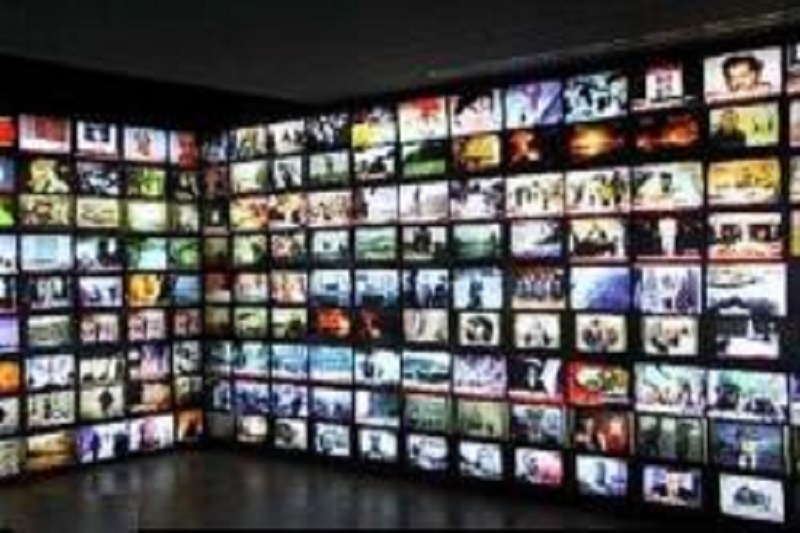The job of the media in every civilized nation is to inform and educate the public, to take the difficult problems, policies and government positions and make them easier to understand for their readers and viewers. It’s just that simple. It’s the social responsibility that is demanded of any journalist.
Keep that in mind while you read because it is the most important thing you can know about the media.
News organizations, in the past, were bastions of truthful information. They were sanctuaries for the dissemination of information to the public to assist in informed decision making. Names like Murrow, Cronkite, Koppel, Jennings, Russet and Rather made up the illustrious lineups of America’s nightly and investigative news programs. These were gladiators of the truth. Of course, there were the fringe outlets and anchors that populated the news media, but they were quickly branded as tabloid journalists because their journalism was based on rumor mongering, false reporting and character assassination. They were the peasants of the news media, looking for ways to make themselves relevant in a world that thrived on honest, factual reporting.
When we look at the news media in the United States today, it’s the peasants that have taken over and the gladiators have been dispatched to museums and universities to teach what was once a fine craft. For those who understand the media, it’s known as the Fox News effect.
This is where we pick up Pakistan’s media journey.
When PTV first took to the airwaves, everyone knew its role as the government’s propaganda arm. They would never criticize or counter the government narrative or performance, even if the facts on the ground were radically different. Many felt that the opportunity for private ownership of television channels would bring the people access to better information, intellectual debate and a more realistic projection of the nation’s problems with potential solutions.
Sadly, like everything else in Pakistan, we were significantly disappointed with the result.
With close to 19, 24-hour news channels, Pakistanis are bombarded with stories of little significance, little analysis and great fanfare, with the same faces appearing on every channel as propaganda ambassadors for their respective political party, social cause or establishment position. Our airwaves are filled with stories that are based on questionable sources, little proof and a great deal of assumption. Many of the talking heads have been labeled with the badge of “yellow journalism,” “establishment mouthpieces,” and, the favorite for those who disagree, “traitor.” We are very good at labeling people in Pakistan that we agree or disagree with, and we have never had a problem sinking to character assassination to make our points hit home.
As a result, we find ourselves swimming in a flood of information with no lifeguard to guide the readers and viewers safely to solid ground.
No one is a gladiator for the truth anymore. It’s all about ratings in a highly consumerized marketplace.
Let’s break it down.
In Pakistan’s media, there is a great deal of information that can be presented to the public. From government policy to objectives of state visits, from military operations to economics, Pakistan is full of information that is ignored so that non-stories can be elevated to headline news.
Maybe my definition of breaking news is different than the producers and editors on the news desks, but the Prime Minister leaving his home to head to the airport for a trip to Lahore is not breaking news. A developing story is not breaking news. Those are things that can be flashed on the bottom of the screen in the tickers that have become commonplace on every broadcast news channel around the world.
Yet, it will be reported with minimal details, minimal information, a reporter who will answer the same questions multiple times and the interruption will end with the repeat broadcast starting from a few minutes after it had been when we left it.
What did we gain?
First, we have been told part of a story which confuses or angers the public, more than informs it. Second, we have been fooled into believing that the story carries some sort of significance to our daily lives, when it does not. Third, we have lost information related to the current affairs program because of the interruption.
Had the story been held until more information could be confirmed, an analyst contacted to explain the significance of the story and some background provided, we would gain more knowledge. But that’s not the media’s job in the consumerized marketplace, and they have no shame in telling us this fact.
Recall the number of promo packages you have viewed with channels boasting about being the first to break a story. They aren’t claiming that they were the first to get the story right factually; they are taking pride in being the first to tell you something, and this is where they get value with their advertisers.
The more breaking news they air, the more viewers they get. The more viewers they get, the more advertisers will want to advertise with them. The more advertisers want to advertise with them, the more commercials we will see during news hours, time checks and current affairs programs. It’s all about revenue generation for the Pakistani media.
They are not gladiators for the truth. They are beggars for the money. Whatever story will bring in more money, that is the flavor of the day, even if it is factually, morally, and/or ethically wrong. And we sit in front of our televisions, allowing them to do this to us minute after minute, hour after hour, day after day.
This, in short, is the essence of tabloid journalism.
In the rest of the world, tabloids are mocked mercilessly for sloppy reporting, inaccurate stories and characterizations of people. In Pakistan, we foolishly stand by the channels when they weave their tales of fiction, whether they are attacking a state institution mercilessly for hours on end, destroying someone’s character, or purposely misinforming the public with unqualified experts.
In the past few days, how many counter terrorism analysts, psychologists, educationists, legal, tax or technology experts talked on media, about the arrests of the accused in the Safoora attack or the investigation into the fake degree scam? Would it not have helped us as citizens of this country, to have these issues discussed by intelligent people rather than the politicians who are guilty of either creating the circumstances or similar crimes themselves?
The job of the news media is to inform and educate the citizens of the country, to make better informed decisions.
The news media needs to reform, just like every institution in the country. They need to better categorize and select the news stories for the public. They need to have panels of educated, informed experts that can explain the problems of the country, enumerate the possibilities and limitations of tackling those problems, thereby helping us to find solutions as citizens. The time for point scoring is gone. The public is tired of being dragged in one direction, only to be pulled in another, once the story is developed. They never forget what was said initially and that becomes part of the basis for the decision making in the country, no matter how incorrect it may have been.
When Pakistan’s media becomes more intelligent, the people become more informed to make better decisions. Better decisions make a better Pakistan.
But maybe that’s what they don’t want.







